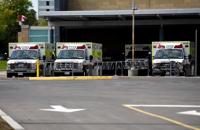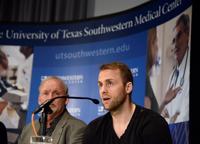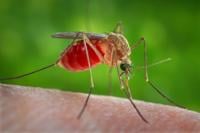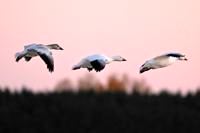VANCOUVER - A pediatric infectious disease doctor says there's nothing to suggest that British Columbia parents sending kids back to school next week need to make big changes in how they manage COVID-19 after a new variant was discovered in the province.
But Dr. David Goldfarb at BC Children's Hospital says evidence from the Southern Hemisphere suggests influenza B, which can affect children worse than adults, will be particularly prevalent this year.
He says that strain is well covered in the annual flu shot and people should get the vaccine for themselves and their children when it becomes available, as well as for COVID-19.
Goldfarb says there was "unprecedented" pressure on the health system last year when there was a wave of childhood respiratory illnesses, including influenza and respiratory syncytial virus, or RSV.
He's not expecting such an intense respiratory illness season this year, although it's still important to get the shot.
The BC Centre for Disease Control this week detected Canada's first known case of new COVID-19 variant BA.2.86, but Goldfarb says there's no early evidence that it causes more severe disease.
The variant of the Omicron strain has been detected in a number of countries around the world and Goldfarb said doctors learn quickly whenever there is a new variant and can adjust their guidance accordingly.
"Right now, there's not anything that would suggest parents need to make any big changes around guidance related to this specific variant," he said.
Goldfarb said he expected a new COVID-19 shot to be released soon, though details about who will qualify have not been announced.
He said that influenza and RSV were generally the leading viruses causing illness among children during the respiratory season, but during the pandemic, influenza was "barely seen at all" until last season.
Both illnesses "very much came back with a vengeance," he said
A report published this week says B.C. experienced only 11 RSV cases between September 2020 and August 2021. That shot up to 9,529 cases in 2021-22 and 8,215 cases the next year.
Goldfarb said doctors in Canada often look at the Southern Hemisphere to get a sense of what the respiratory illness season here might look like.
"It's not a perfect crystal ball, but it does give us some sense of what we may expect. The fortunate news is that they didn't see a huge surge this past season that's just finishing up there in most jurisdictions in the south, for RSV or influenza."
This report by ºÚÁϳԹÏÍø was first published Sept. 1, 2023.








































